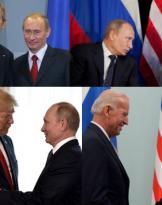A few days ago Revue de la Défense Nationale (FR) published an article by Colonel François-Règis Legrier1 entitled: "The Battle of Hajin2: tactical victory or strategic defeat? ".
The article was quickly withdrawn from the French Defense magazine portal, although it is still available on some sites3 web site.
What did the article say so subversive? Let's try to understand it together.
In his piece, Colonel Legrier performs an operational overview of the Operations Area also highlighting the players involved (Daesh, Western Coalition, Kurdish Democratic Forces, Syrian Government Forces and Hezbollah Militias). So far, nothing that is not already known to those who follow the conflict in Syria, even though in Italy media coverage is practically nil.
Subsequently, however, the colonel examines the nature and the size of the Western intervention in that Theater of Operations, outlining both those that he believes are some problems and possible solutions.
Here, the trouble begins, at least according to the French General Staff of Defense.
Colonel Legrier poses, as a fundamental problem, that of the strategic approach to conflict. In particular, it highlights how the strategic objective can not be to "drive" Daesh from a physical place and / or to neutralize a certain number of terrorists, because in a short time the phenomenon will be born a short distance if not in the same place. The reason is obvious. From a strategic point of view all the causes that allowed the birth and the proliferation of this movement must be analyzed. The conflict, always from a strategic point of view, must focus on the comparison of "will", influencing in the sense we wanted the perception of the population and local and regional institutions. Only in this way, even planning a post-conflictual phase, is it avoided that fundamentalism reborn in a short time in a exhausted population that is living in a territory completely tortured by the conflict.
A different strategic approach, among other things, would have also allowed a better management of the conflict at an operational and tactical level. The fighting in Iraq and Syria, for example, were considered in their own right and not as a single whole, since the effects to be achieved and the enemy to be fought are the same.

In synthetic terms, col. Legrier also identifies additional vulnerabilities in the Western approach to the ongoing conflict in Iraq and Syria.
In the first place, for reasons of mere political opportunism, Western countries have chosen to conduct them proxy battles, using, that is, as a unit on the ground almost exclusively of local militias that have been guaranteed an air fire support and artillery of the coalition, together with the use of special forces structures.
having avoided the use of conventional western units has led to the need to agree the timing of the action with local militias, not always interested in proceeding quickly. In fact, the Western Coalition has had to undergo, on certain occasions, their timing of the maneuver, with the consequent need for an extensive use of lethal fire as the only means of restricting Daesh's freedom of action. The effect on the infrastructural and social fabric of this type of approach has been very heavy.
Moreover, on the western side, having used only special forces on the ground has led to a distortion of their characteristics, since they have been used - mainly - to conduct conventional operations. This is only because in the West the conviction has been created that the use of special forces for conventional tactical activities is less "dangerous" towards the public opinion.
Furthermore, the hyper-technological approach to combat has led to the impossibility for the Western Coalition to support the Syrian Democratic Forces in case of bad weather. Obviously, this vulnerability has been widely exploited by Daesh who has planned his tactical activities to exploit this factor. Otherwise, the presence of conventional units of the Coalition would have generated a combined effect of movement and fire that would have guaranteed the freedom of action necessary to defeat Daesh in more contained times and without reaching the almost total destruction of the infrastructural and social fabric of the territories concerned..
 Finally, but not least, also the problem of information fight that Daesh has been able to conduct in a very professional manner, often acting ahead of the Western moves and succeeding in proposing himself as a valid actor, at least in the eyes of many of those who later joined up in their ranks or became supporters.
Finally, but not least, also the problem of information fight that Daesh has been able to conduct in a very professional manner, often acting ahead of the Western moves and succeeding in proposing himself as a valid actor, at least in the eyes of many of those who later joined up in their ranks or became supporters.
In conclusion, col. Legrier highlights how the battle of Hajin has certainly been won, but the bases have been laid for the resurgence of the phenomenon. Without a strategic approach to eradicating the phenomenon, and not simply eliminating some followers, strategic victory will not be possible. This element can only be defined by the political level that, consequently, must put in place the necessary structures, military and otherwise, according to an approach that must be multidisciplinary.
We are talking about concepts universally known and cited in the world bibliography of the sector4. Evidently, we prefer to continue with the sensational advertising policy rather than with the serious planning of defense and security policy activities, even at the multinational level. All this on the shoulders of local populations and operators on the ground.
1Commander of the 68 ° Artillery Regiment of Africa and Commander of the WAGRAM Task Force in Iraq and Syria from October 2018 to February 2019.
2City located in the Deir-el-Zon Directorate in Syria.
4https://www.difesa.it/SMD_/CASD/IM/IASD/65sessioneordinaria/Documents/te...
Photo: Task Force Wagram - Ministère des Armées












